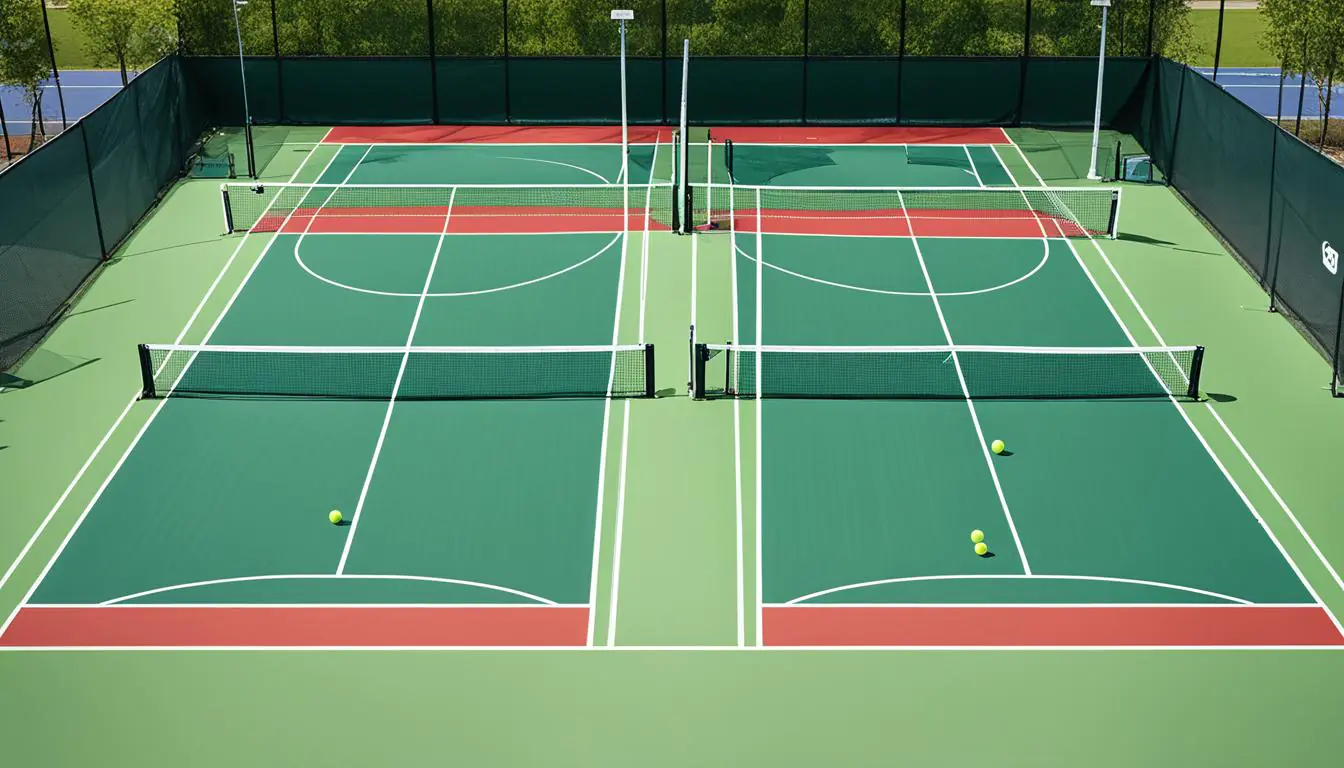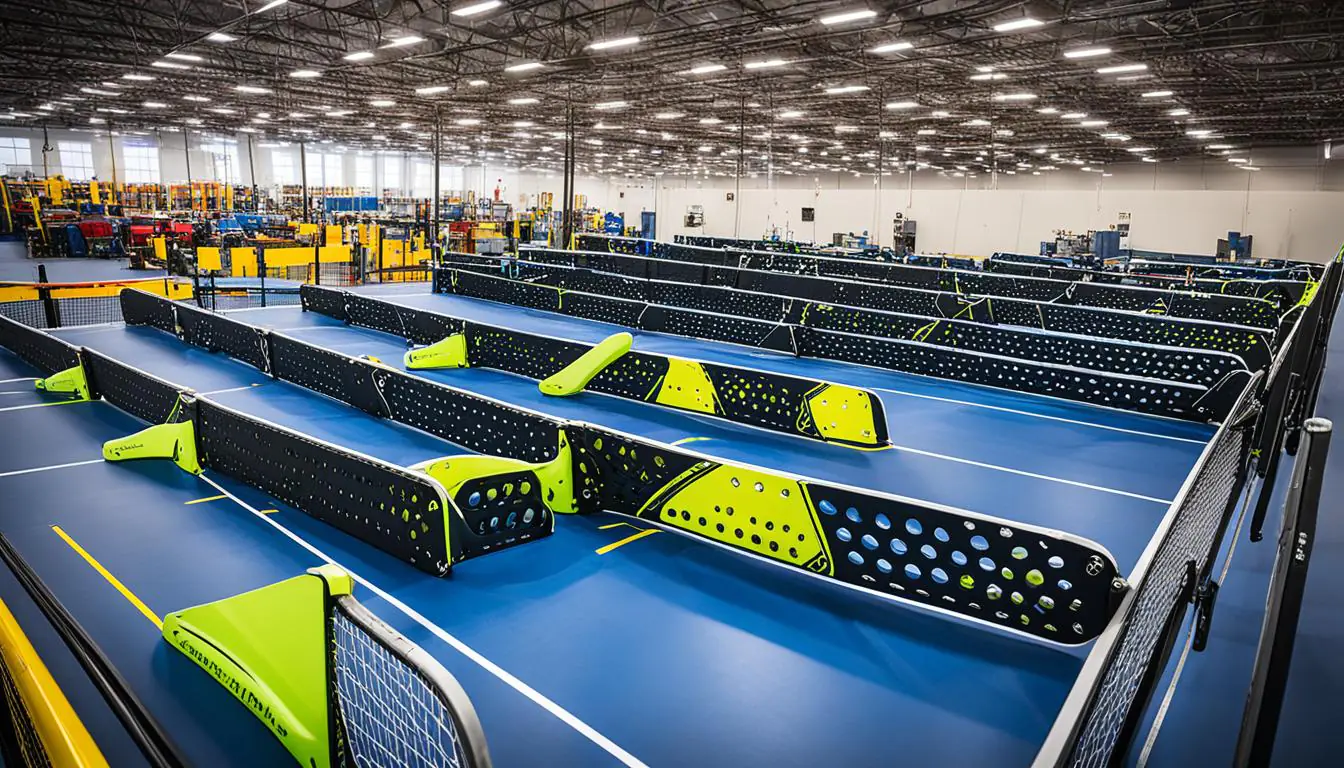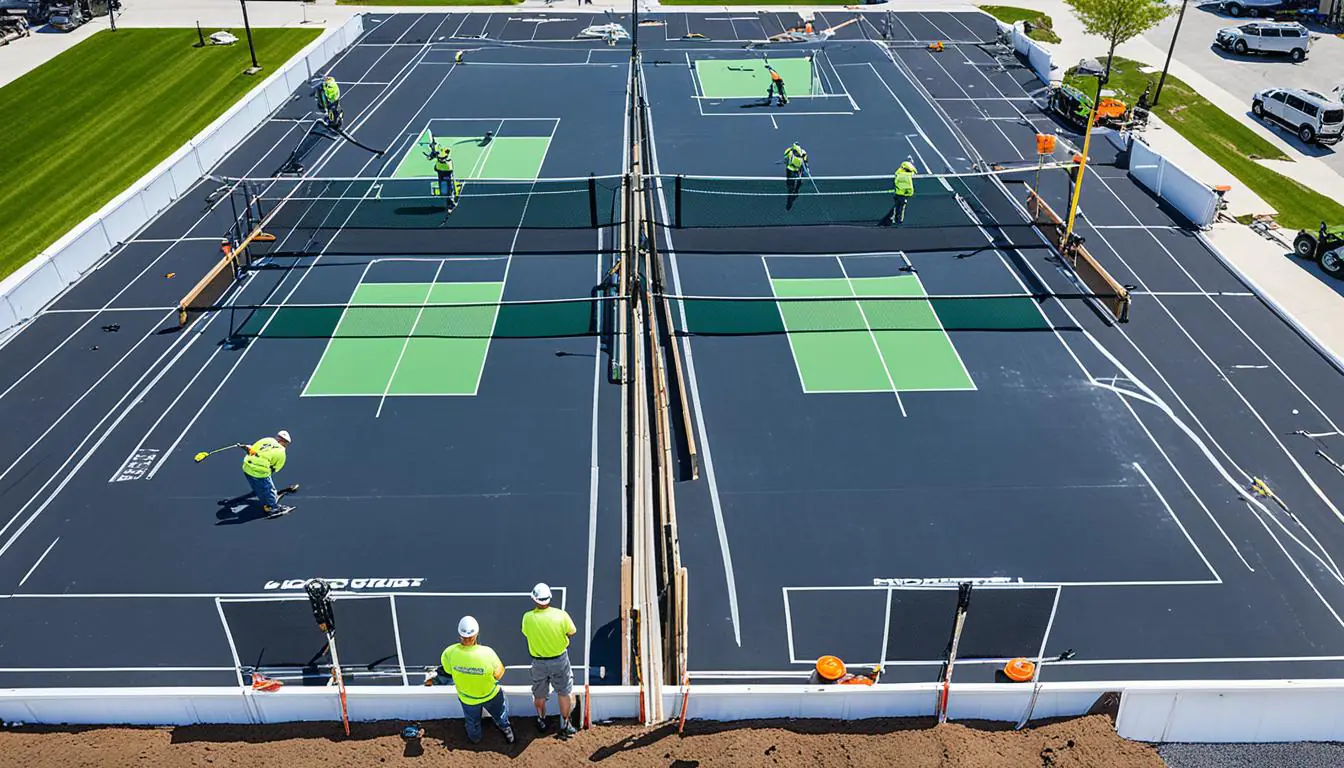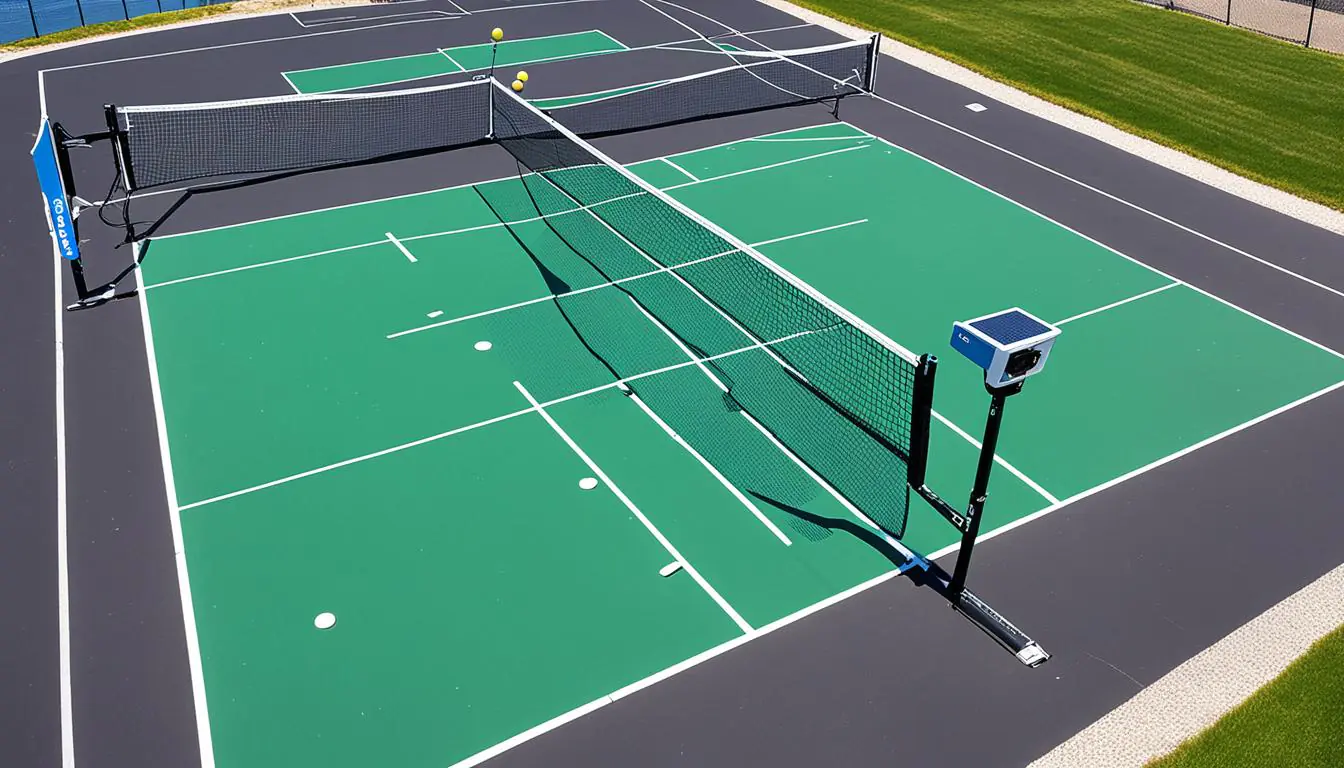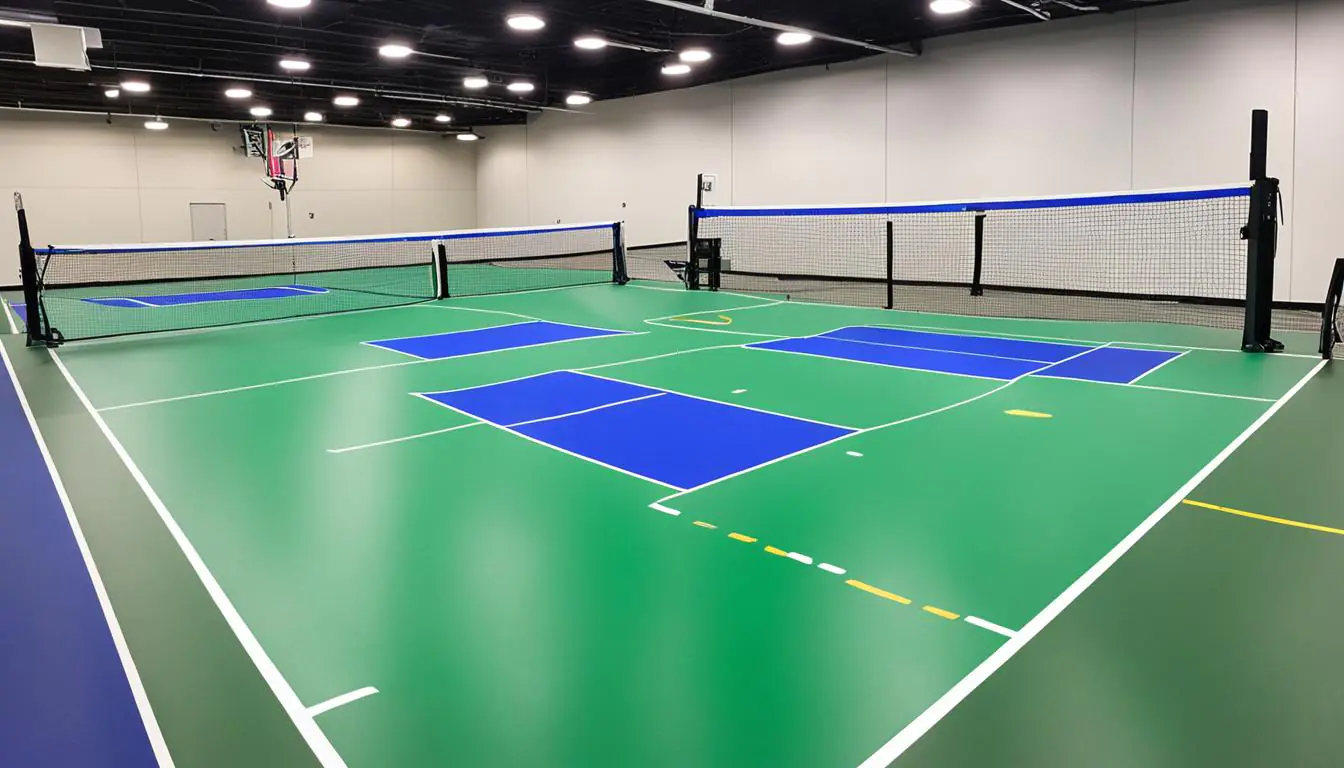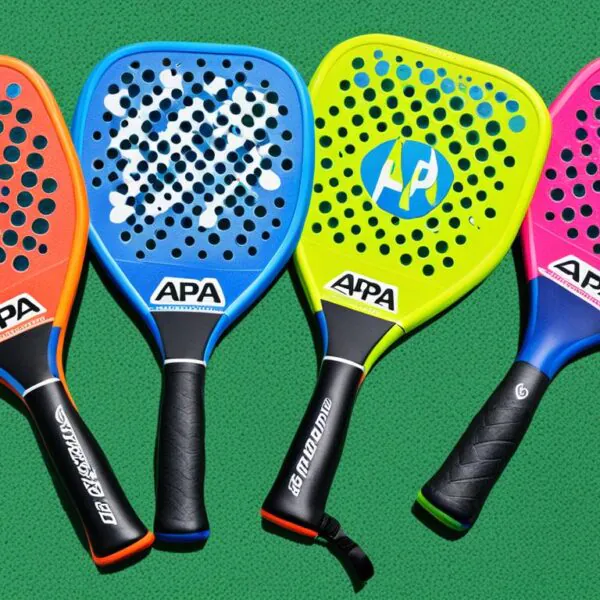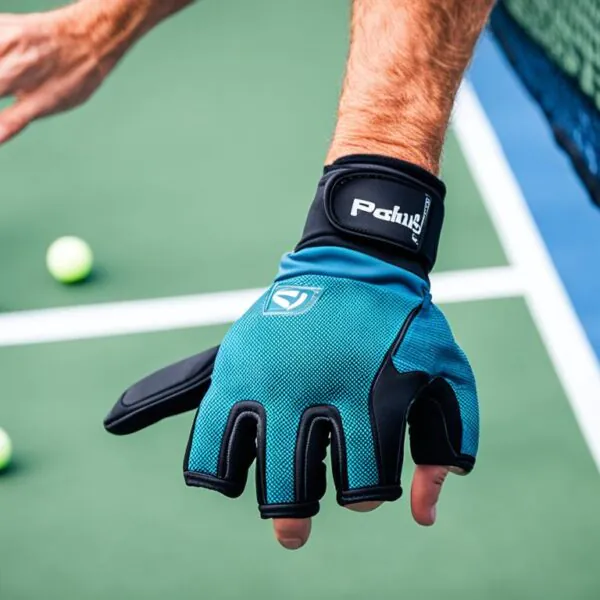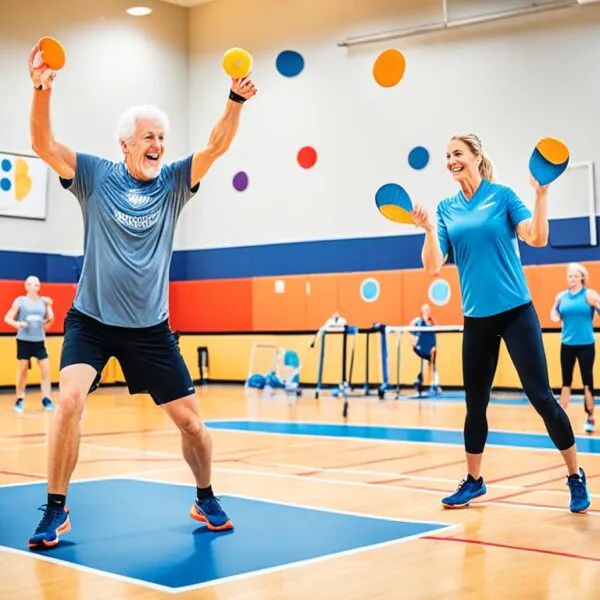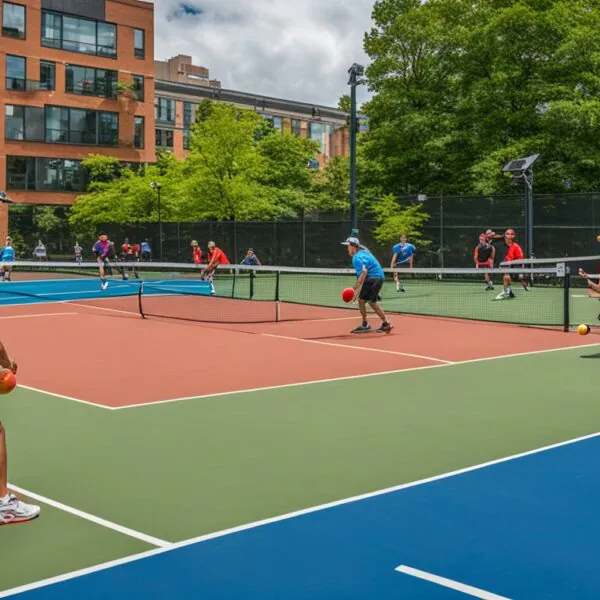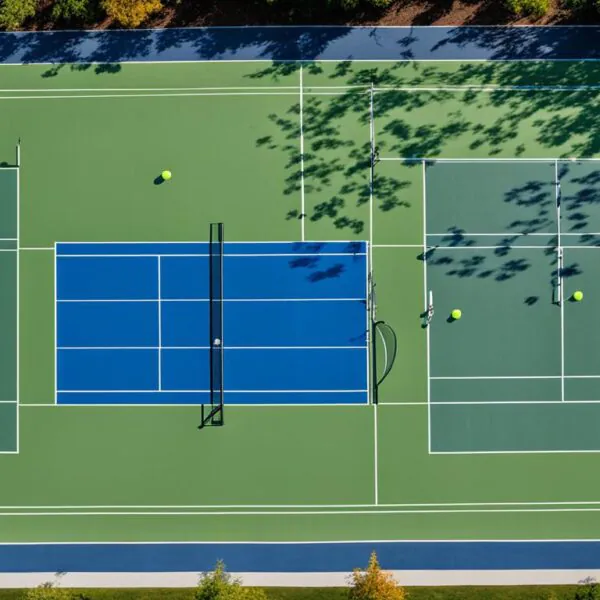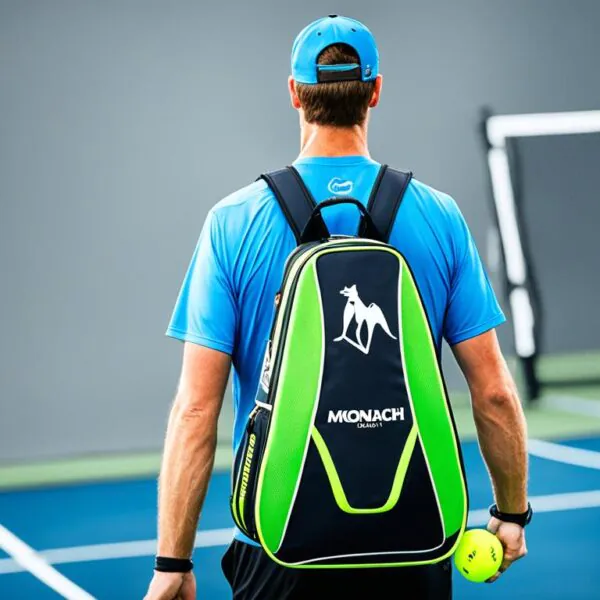Did you know tennis courts are almost four times bigger than pickleball courts? Tennis courts are 78 feet long and 36 feet wide. Pickleball courts are only 20 feet wide by 44 feet long. This big difference affects how these sports are played.
Pickleball is growing fast and welcomes players of all ages and skills. Tennis keeps its classic appeal. Knowing the differences between pickleball and tennis courts helps both new and experienced players. It’s key to understanding court sizes, surfaces, equipment, and how to play.
Key Takeaways
- Tennis courts are significantly larger than pickleball courts, influencing gameplay strategies.
- Different types of equipment are used: rackets in tennis and paddles in pickleball.
- Scoring methods and serving techniques vary greatly between the two sports.
- Pickleball emphasizes net play with its “kitchen” zone, while tennis typically features back-court action.
- Both sports can be played in singles or doubles formats, catering to a wide demographic.
- Warm-up routines and physical techniques are similar, making transition between the two sports easier.
Introduction to Pickleball and Tennis
Sports have changed a lot over time. They now offer many choices for athletes. When we look at pickleball vs tennis, we see how different they are. Pickleball started in the 1960s and mixes badminton, tennis, and ping pong. This mix makes it fun for people of all ages and skills.
Tennis has a long history and is played all over the world. It needs skill and has singles and doubles. Pickleball and tennis are very different in how they are played. Pickleball has a smaller court, which makes the game fast and strategic. Tennis courts are bigger, letting players move more.
The Pickleball Cabin Family loves how pickleball brings people together. Tennis is more about competing alone, but pickleball builds strong friendships. Knowing these differences helps us enjoy each sport more.
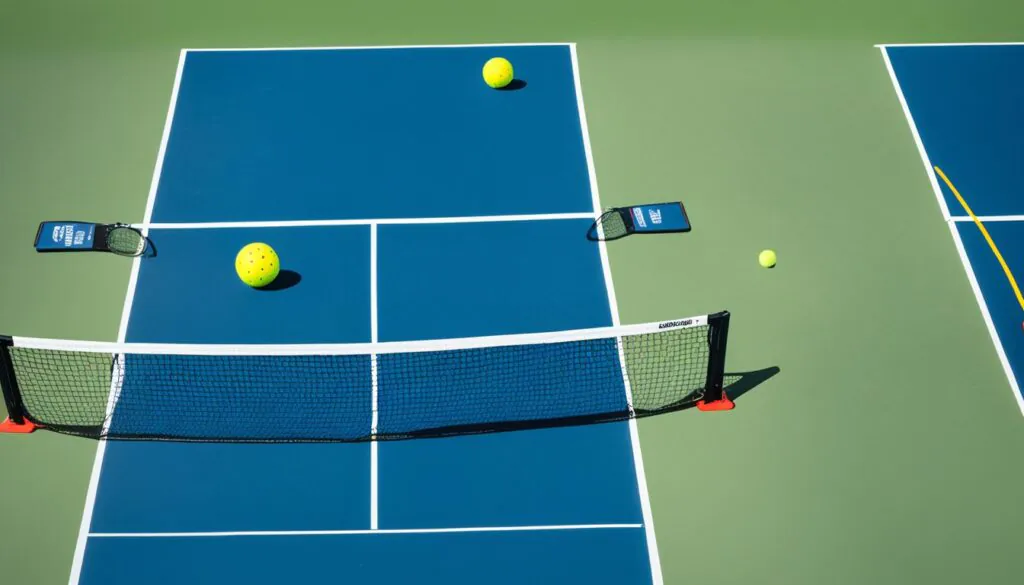
Pickleball and tennis have their own ways of serving and scoring. In tennis, players serve diagonally. In pickleball, it’s an underhand serve to the other box. These differences make each game unique and draw in different players.
Court Size and Dimensions
Pickleball and tennis have different court sizes. Pickleball courts are smaller and made for quick play. Tennis courts are bigger and support a variety of play styles.
Pickleball Court Dimensions
A pickleball court is 20 feet wide and 44 feet long. It suits both singles and doubles games. The court’s size makes it easy for players to move around.
There’s a non-volley zone 7 feet from the net on both sides. This area affects how players hit the ball. Each side has two service areas, 15 by 10 feet each.
Tennis Court Dimensions
A tennis court is wider than a pickleball court. It’s 36 feet wide for doubles and 27 feet wide for singles, all the same length at 78 feet. The court’s size lets players use different strategies.
One tennis court can fit four pickleball courts side by side. This shows how much bigger tennis courts are than pickleball courts.
| Feature | Pickleball Court | Tennis Court |
|---|---|---|
| Width | 20 feet | 36 feet (doubles), 27 feet (singles) |
| Length | 44 feet | 78 feet |
| Surface Area | 880 square feet | 2,808 square feet |
| Net Height | 36 inches (sides), 34 inches (center) | 36 inches |
| Non-Volley Zone | 7 feet | N/A |
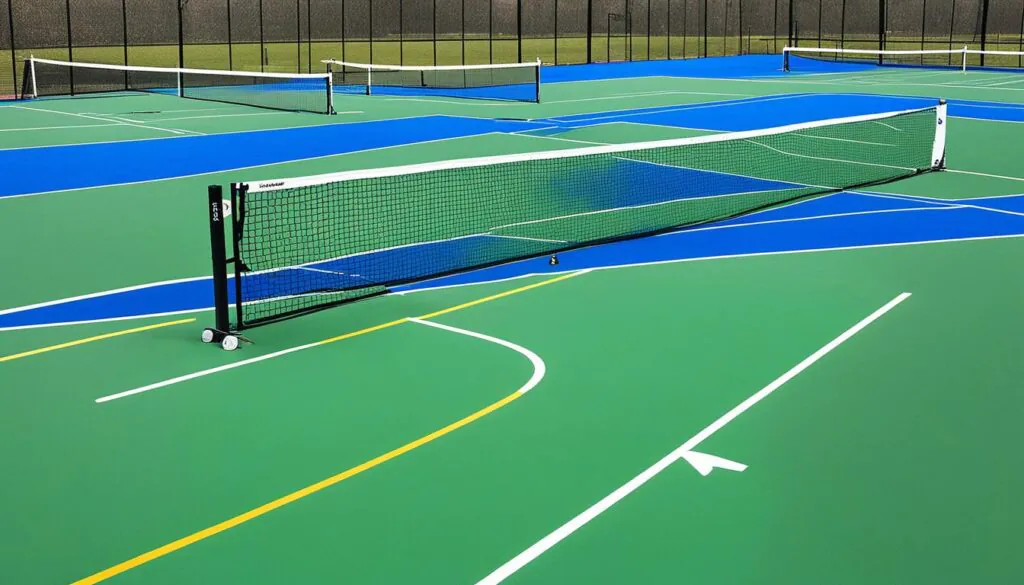
Court Surface Differences
Knowing the differences in court surfaces between pickleball and tennis is key for players. Each sport has its own favorite surfaces. These choices can change how the game feels and plays out. Tennis has many surfaces, while pickleball usually goes on hard courts, leading to different playing styles.
Traditional Tennis Court Surfaces
Tennis courts come in several types, each with its own set of challenges and perks. Let’s look at the main ones:
- Grass: Fast gameplay is a hallmark of grass courts, making the tennis ball speed up.
- Clay: Clay courts slow the ball down, so players need to aim carefully.
- Hard Courts: These are popular for being tough and easy to keep up, offering a good mix of speed and control.
The benefits of tennis court surfaces depend on the player’s style and strategy. Knowing each surface well is crucial for training.
Recommended Surfaces for Pickleball
Pickleball is mostly played on hard surfaces like concrete or asphalt. This choice helps with consistent ball bounces and quick games. Pickleball courts are smaller, at 20 feet by 44 feet, unlike tennis courts.
Pickleball courts have special areas like “The Kitchen” that change the game. Players should think about these court surface differences when picking where to play. The right place can improve skills and fun.
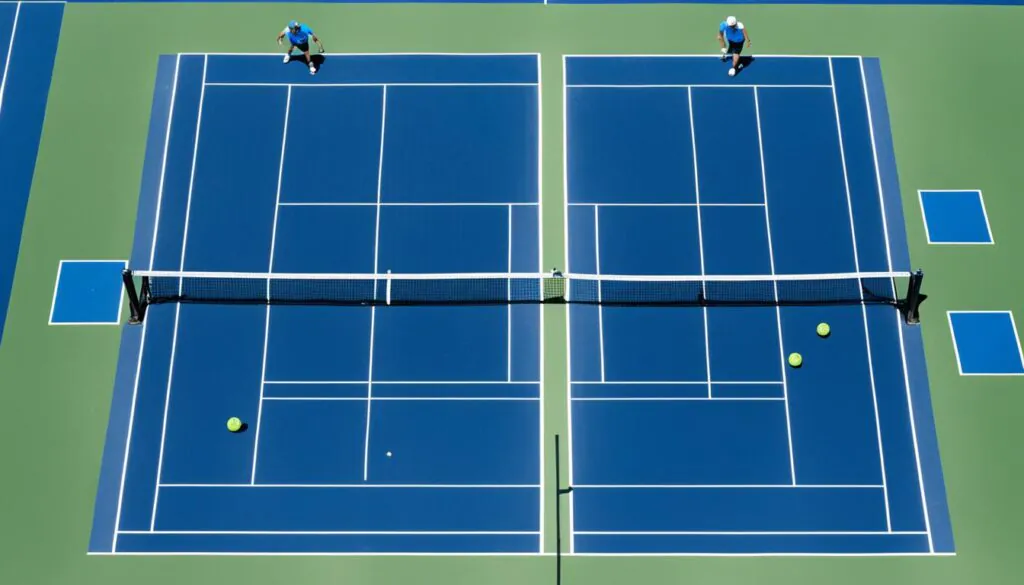
For more on how court surfaces affect each sport, check out this detailed look. It covers many points about equipment and playing style.
Pickleball vs Tennis Court: Equipment Requirements
Knowing what gear you need is key for both new and seasoned players. Pickleball and tennis have different equipment. Pickleball players use light paddles, weighing 7 to 9 ounces. Tennis racquets are heavier, around 11 to 11.5 ounces.
This weight difference means pickleball focuses on accuracy and control. It makes the game easier for beginners.
Rackets and Paddles
Pickleball paddles are made from materials like composite or graphite. They are lighter than tennis racquets. This makes for quick reactions and precise shots.
Unlike tennis racquets, pickleball paddles are designed for control. They are similar to oversized ping pong paddles.
Ball Differences
The balls for pickleball and tennis are quite different. A pickleball weighs 0.78 to 0.935 ounces. Tennis balls are heavier, weighing 1.975 to 2.095 ounces.
Tennis balls bounce higher than pickleballs. They can bounce up to 60 inches. Pickleballs bounce lower and are similar to a whiffle ball with holes.
This affects how the balls move on the court. It changes how players plan their shots. For more tips on equipment, check out Pickleball Cabin.
